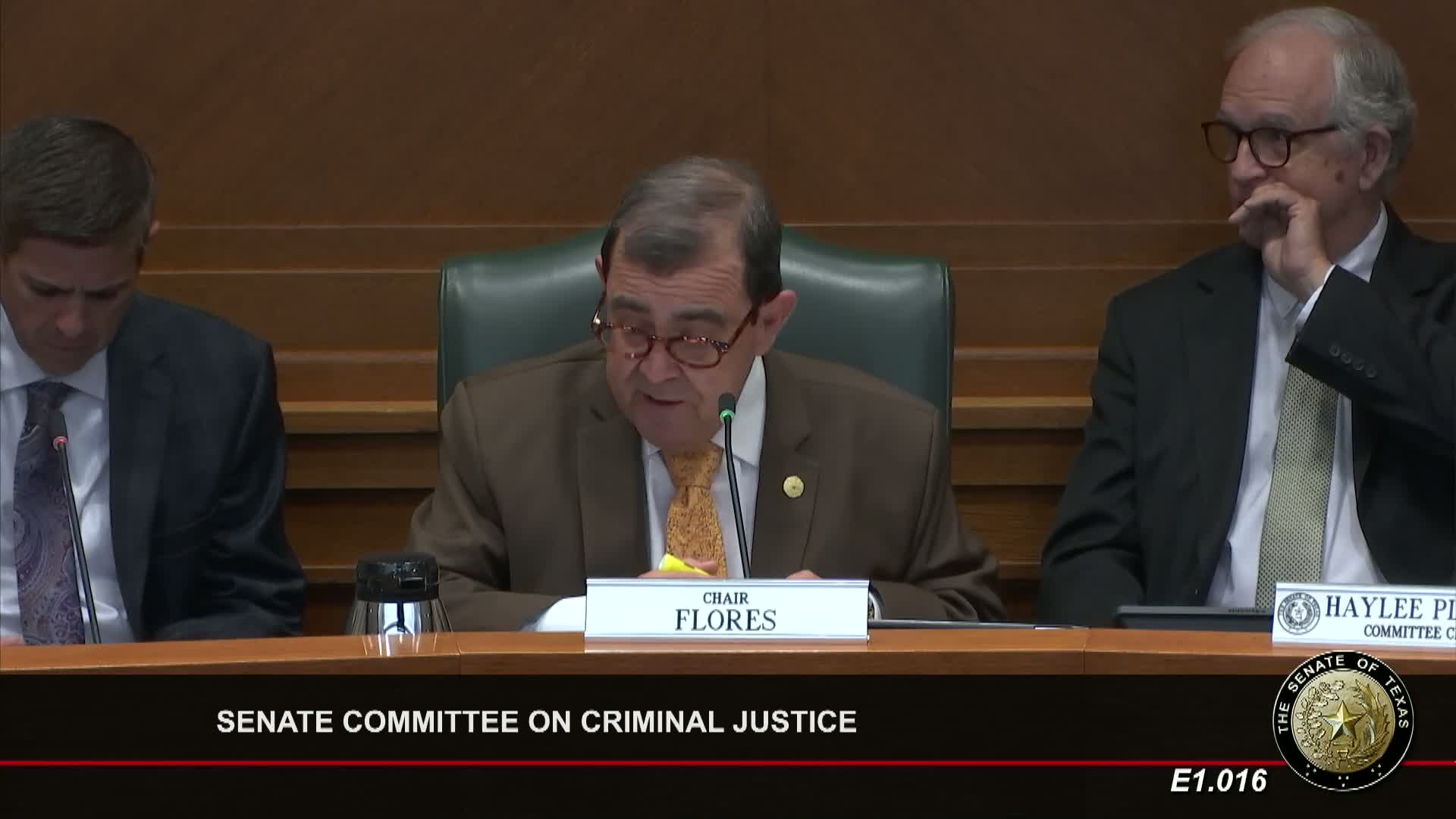Article not found
This article is no longer available. But don't worry—we've gathered other articles that discuss the same topic.
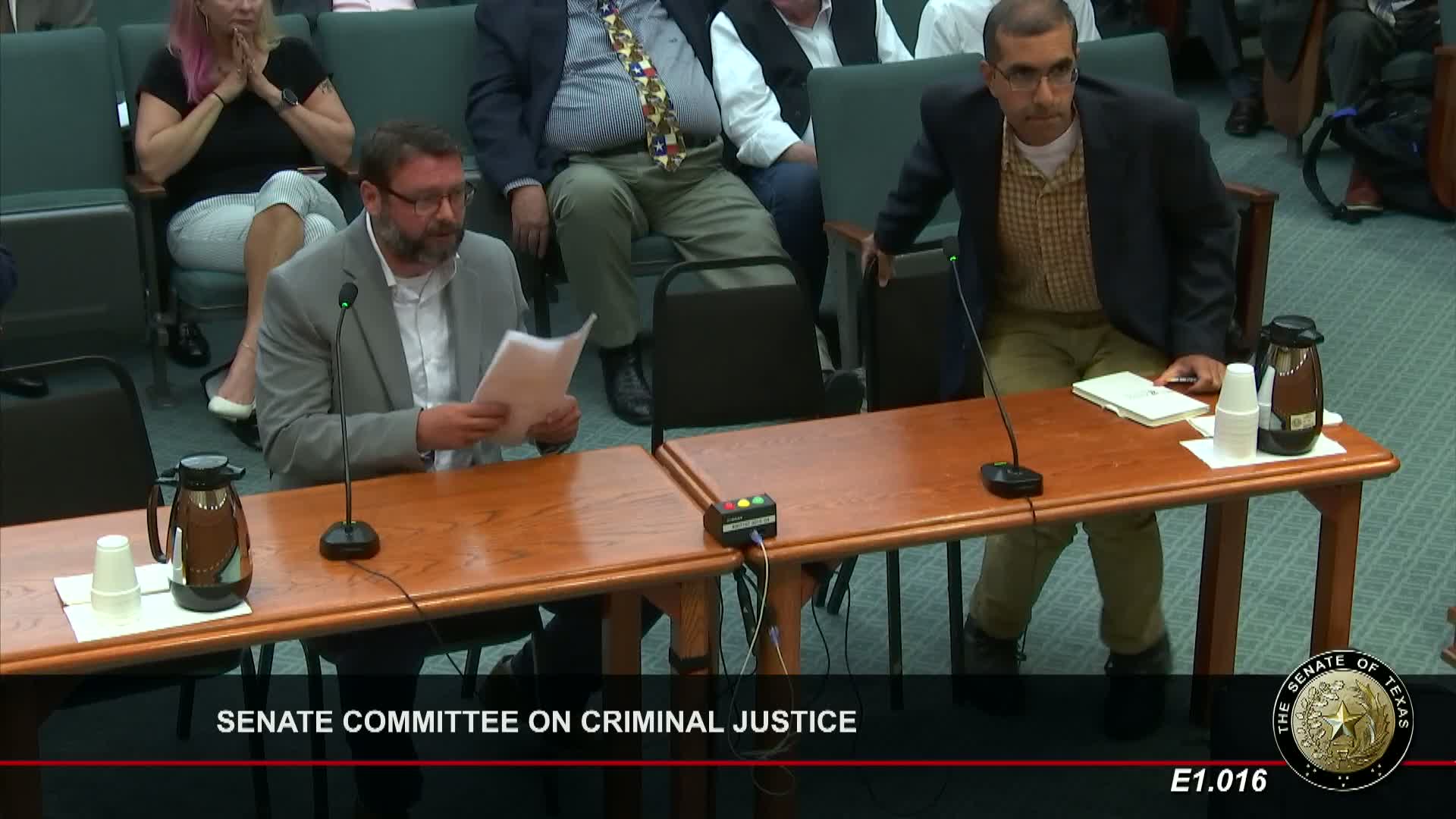
Bill would let defense-focused redevelopment authorities commission peace officers
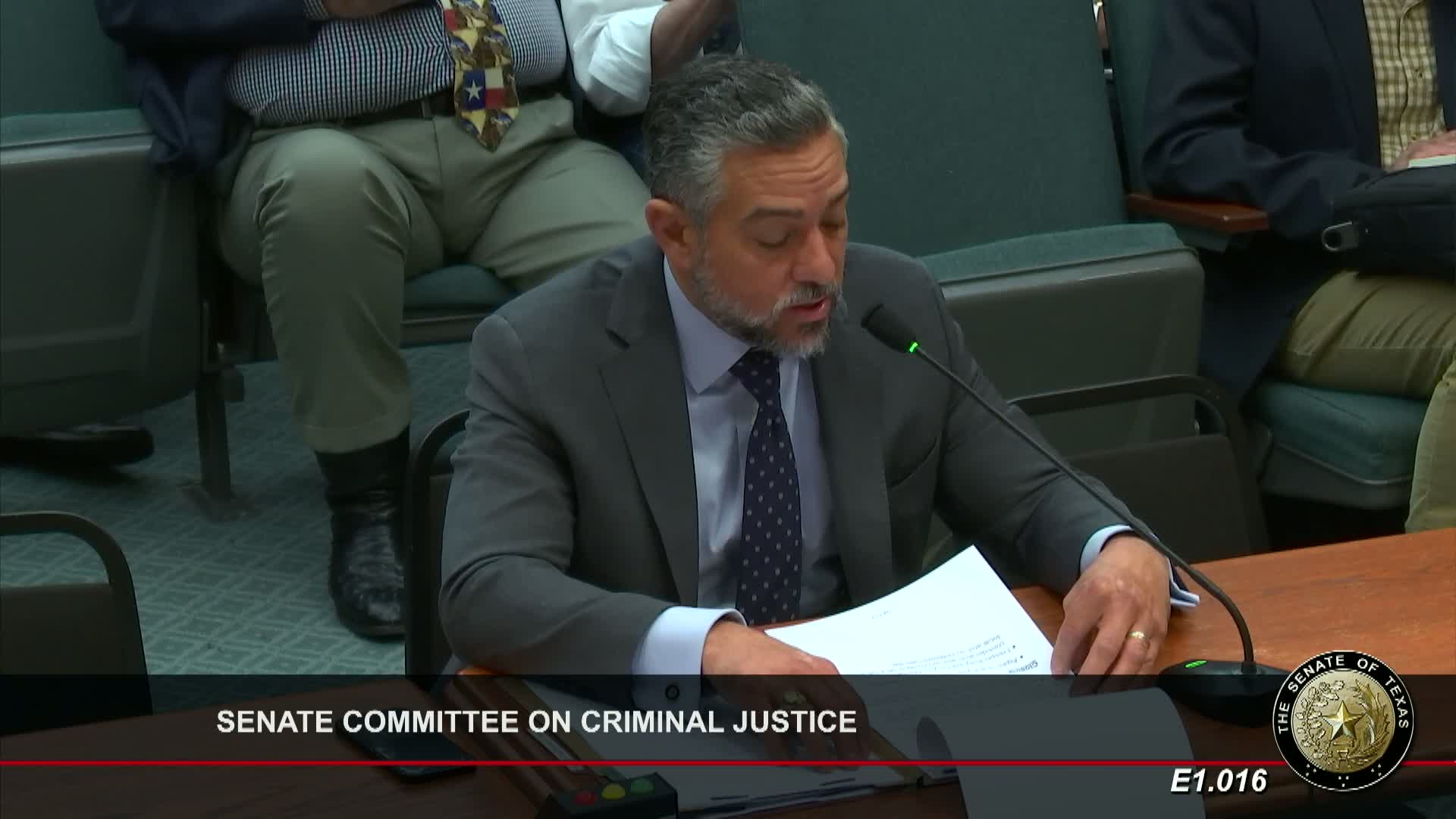
Senate bill would criminalize burnouts and wheelies on public roads
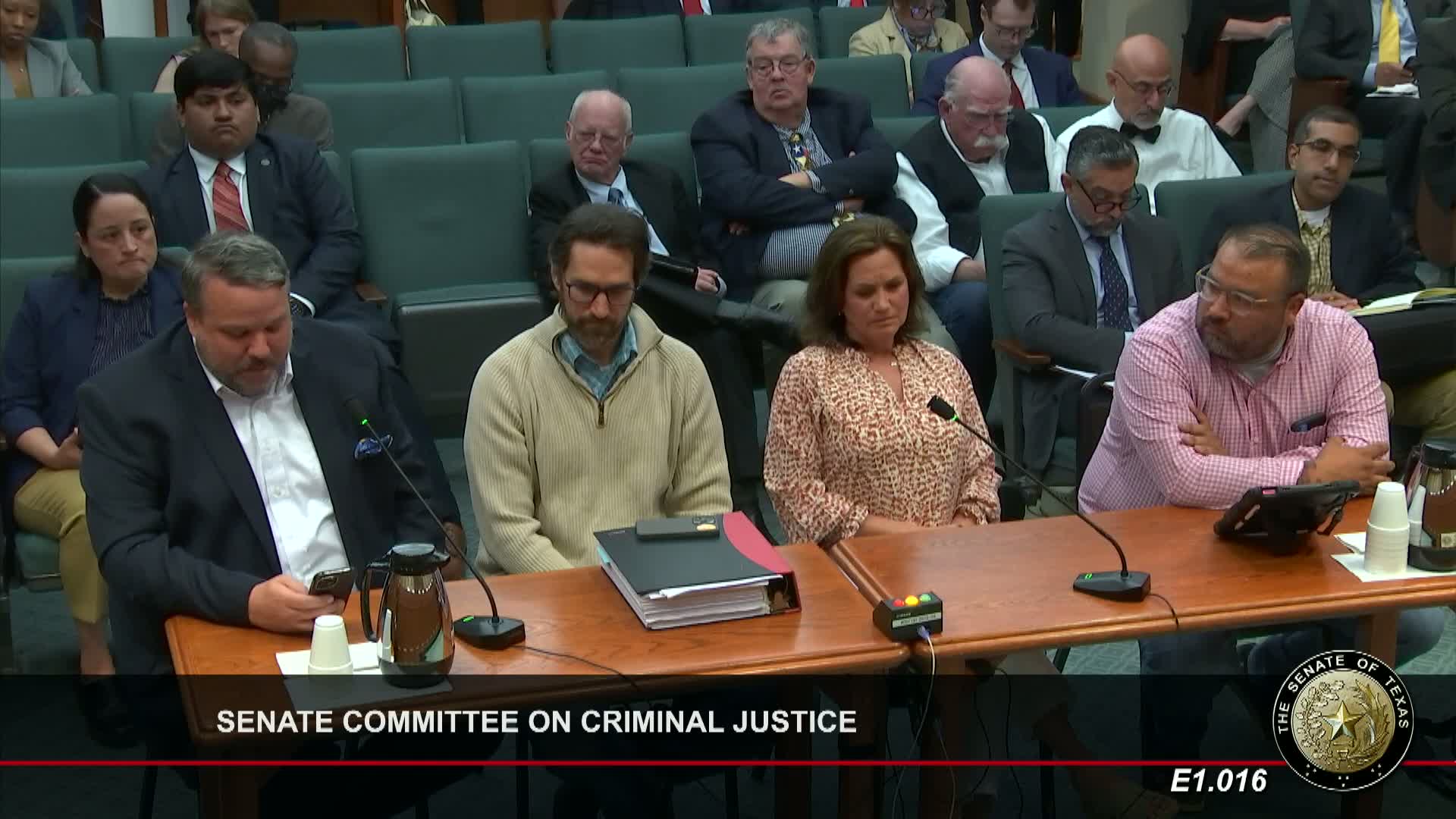
Bill would require telemedicine contracts to expand medical access in juvenile facilities
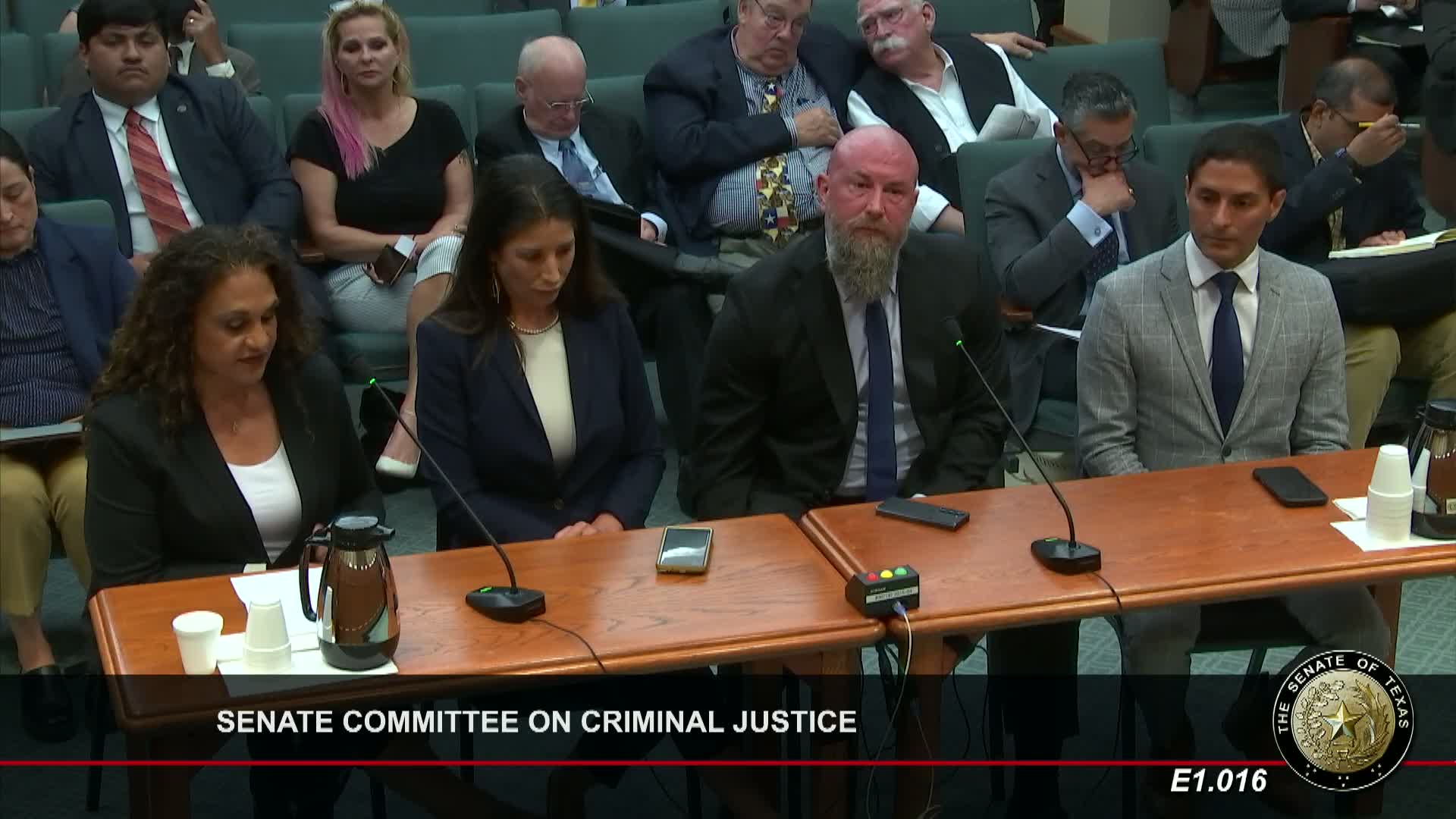
Privacy bill would require warrants before government buys location data from brokers
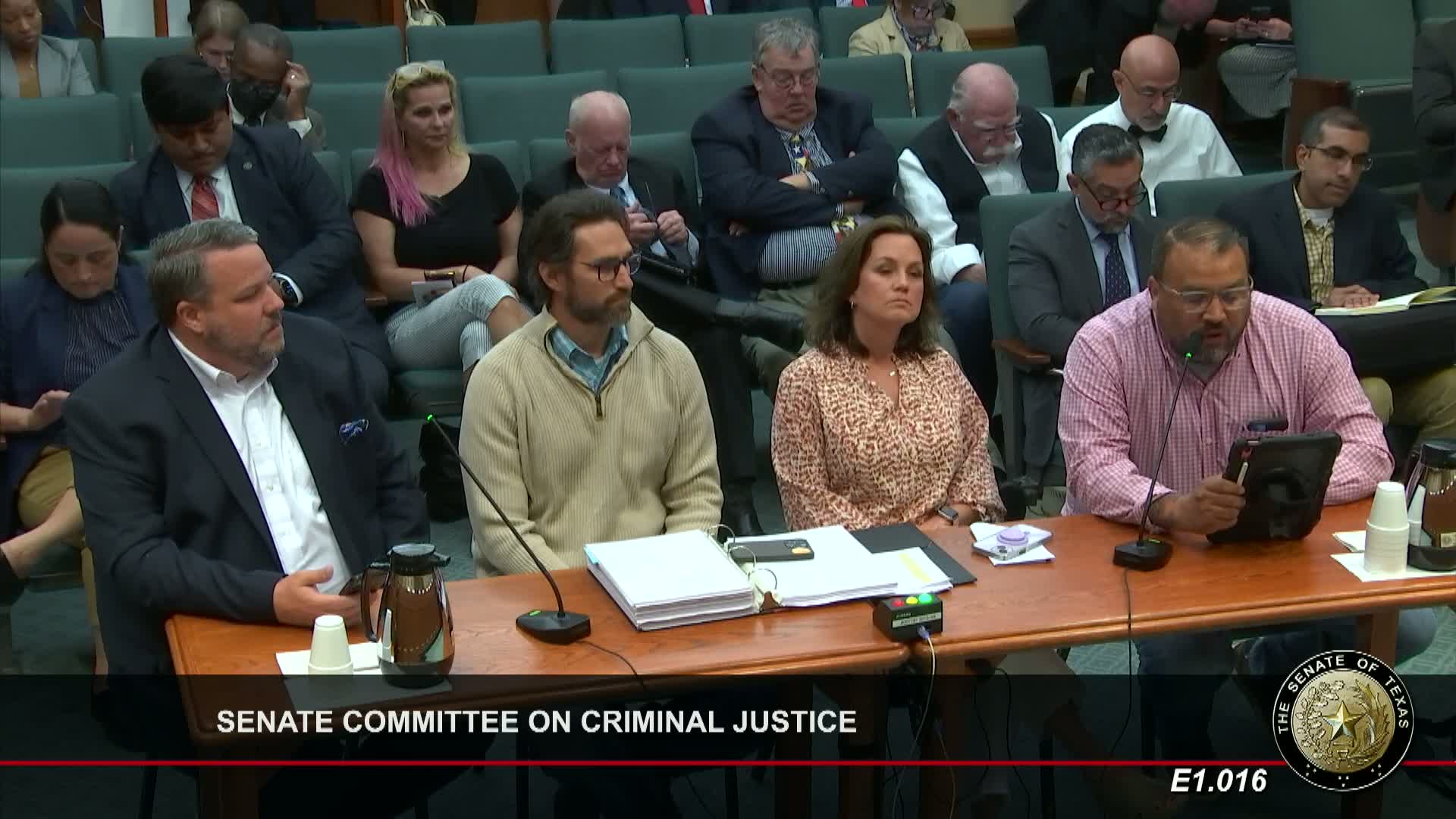
Bill would require expanded de-escalation and crisis training for TDCJ officers after on-duty death
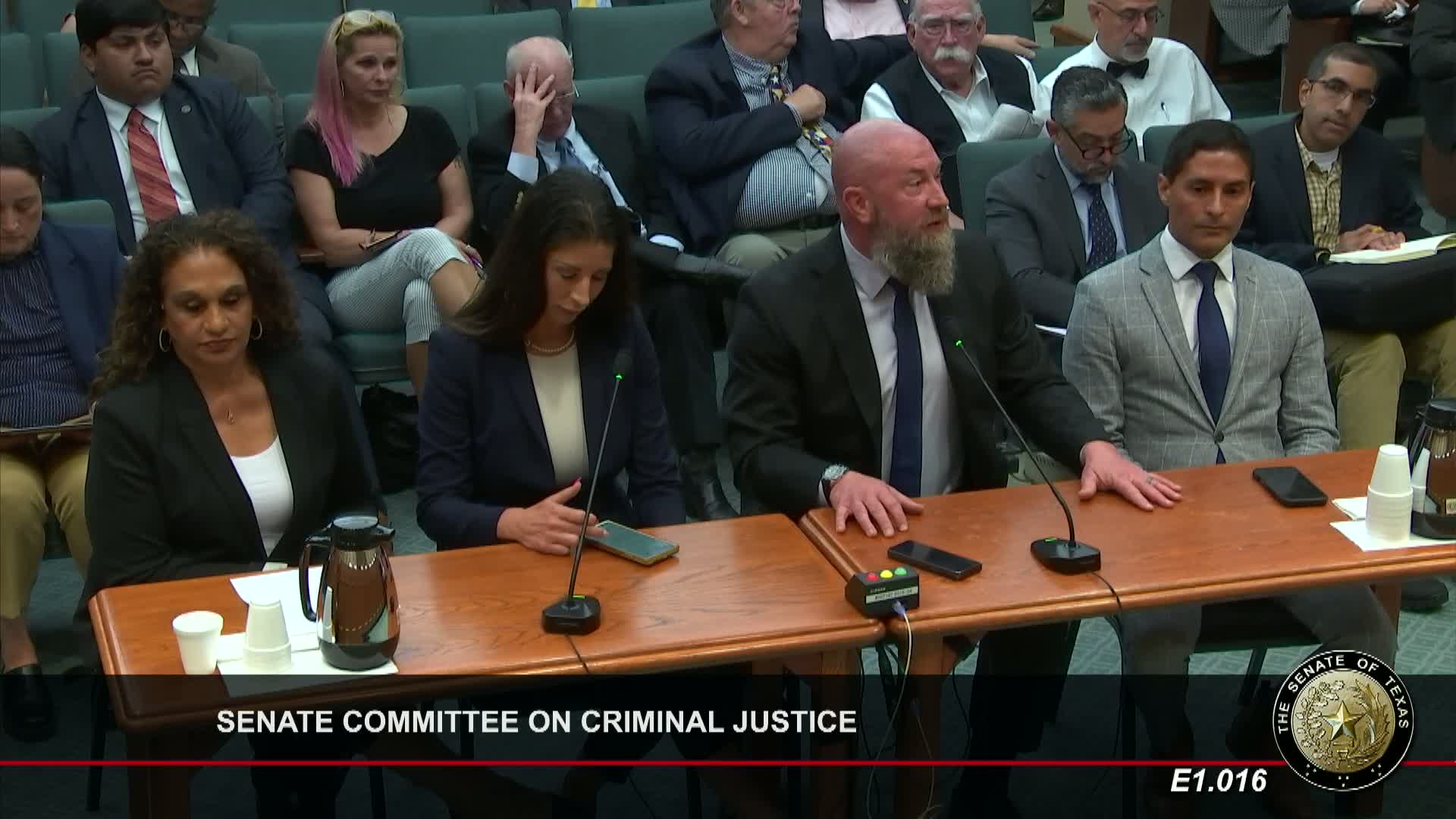
Senate hears 'Ramon Najera' bill to let anonymous witnesses trigger dangerous-dog investigations
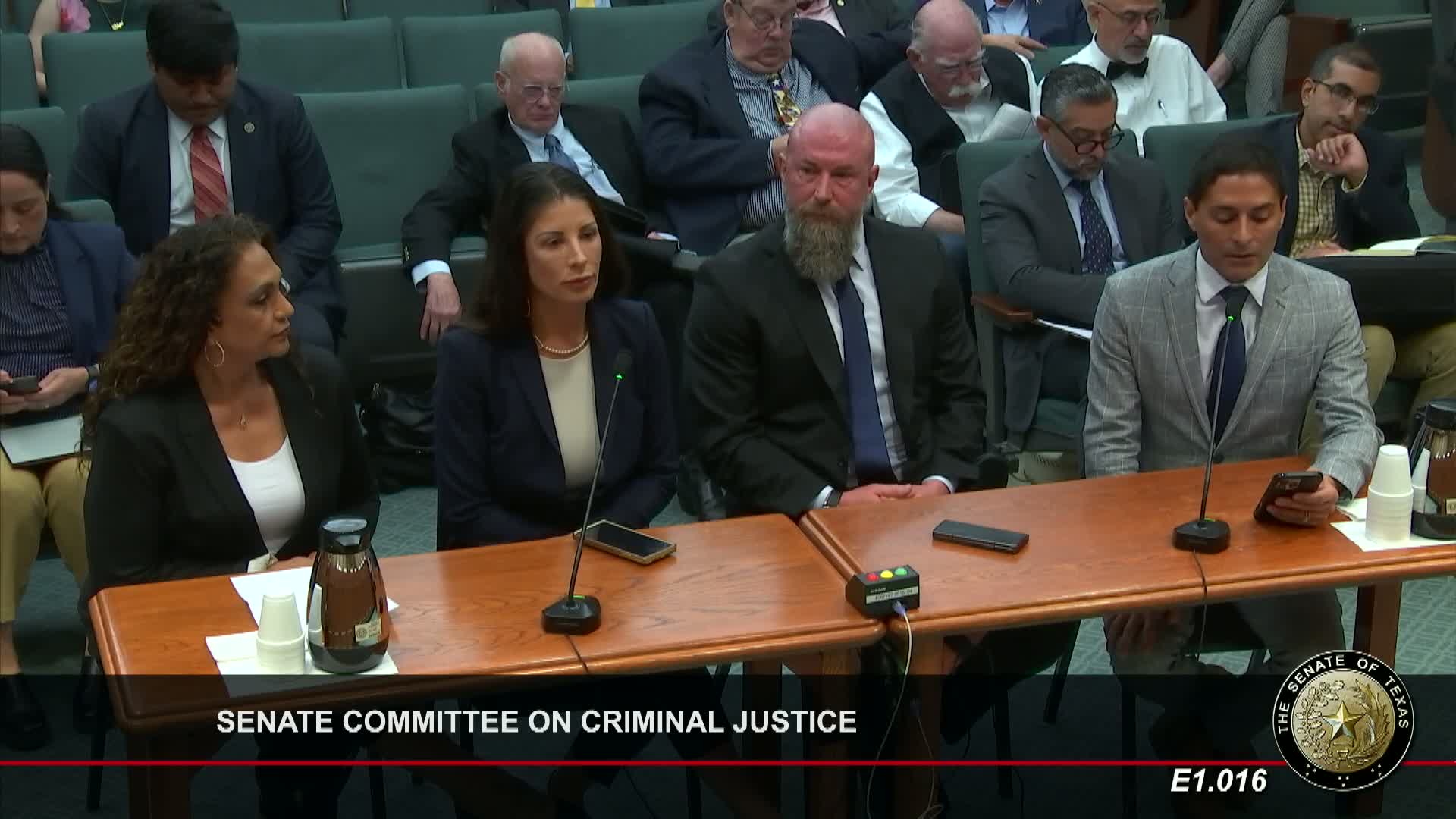
Bill would let local prosecutors sue hotels that fail to require human-trafficking training for staff
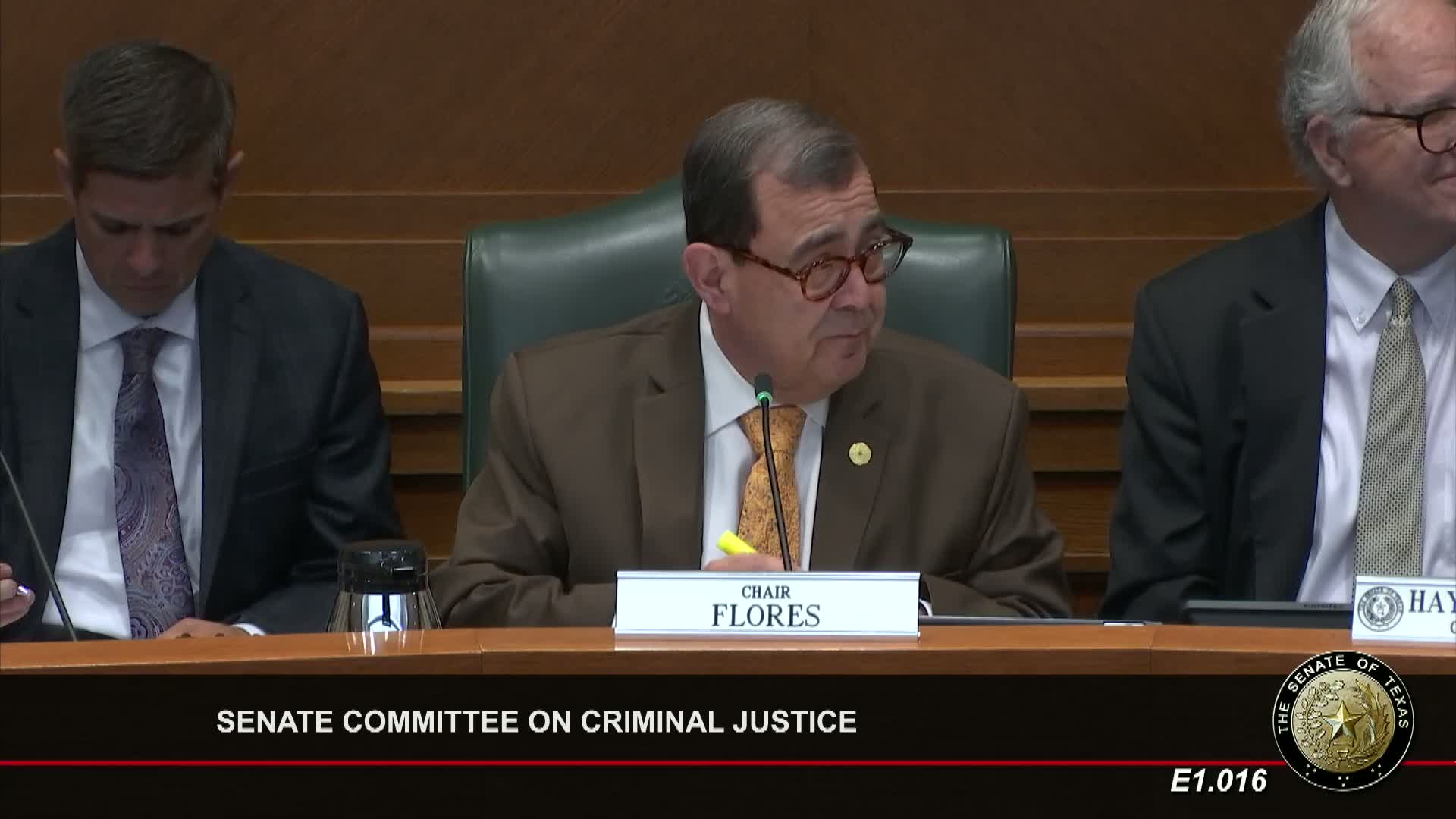
Committee considers 3-strikes penalty for repeated interference with court-ordered parenting time
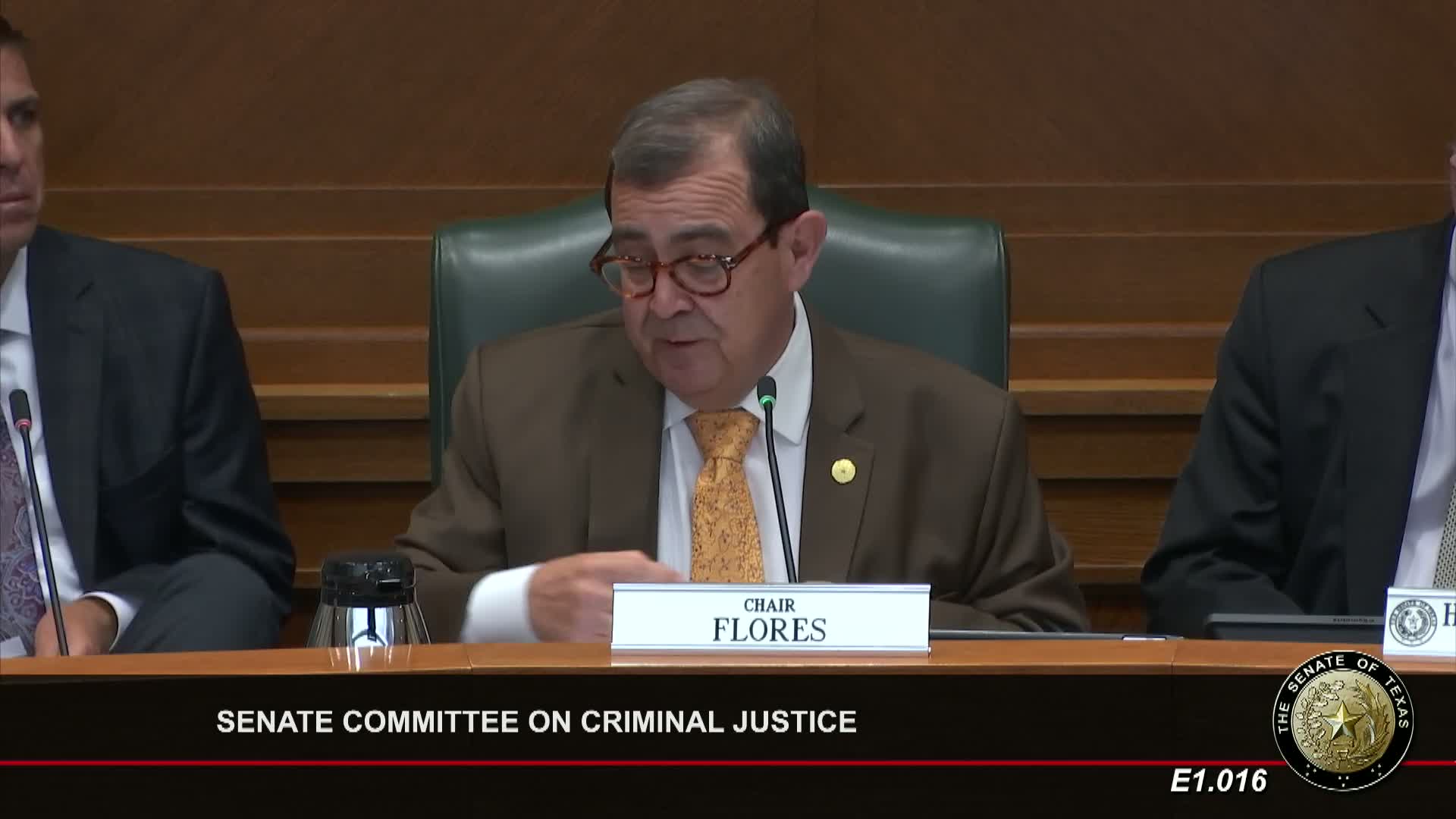
Senate committee advances 'Audrey's Law' to require predator registration for child-grooming convictions
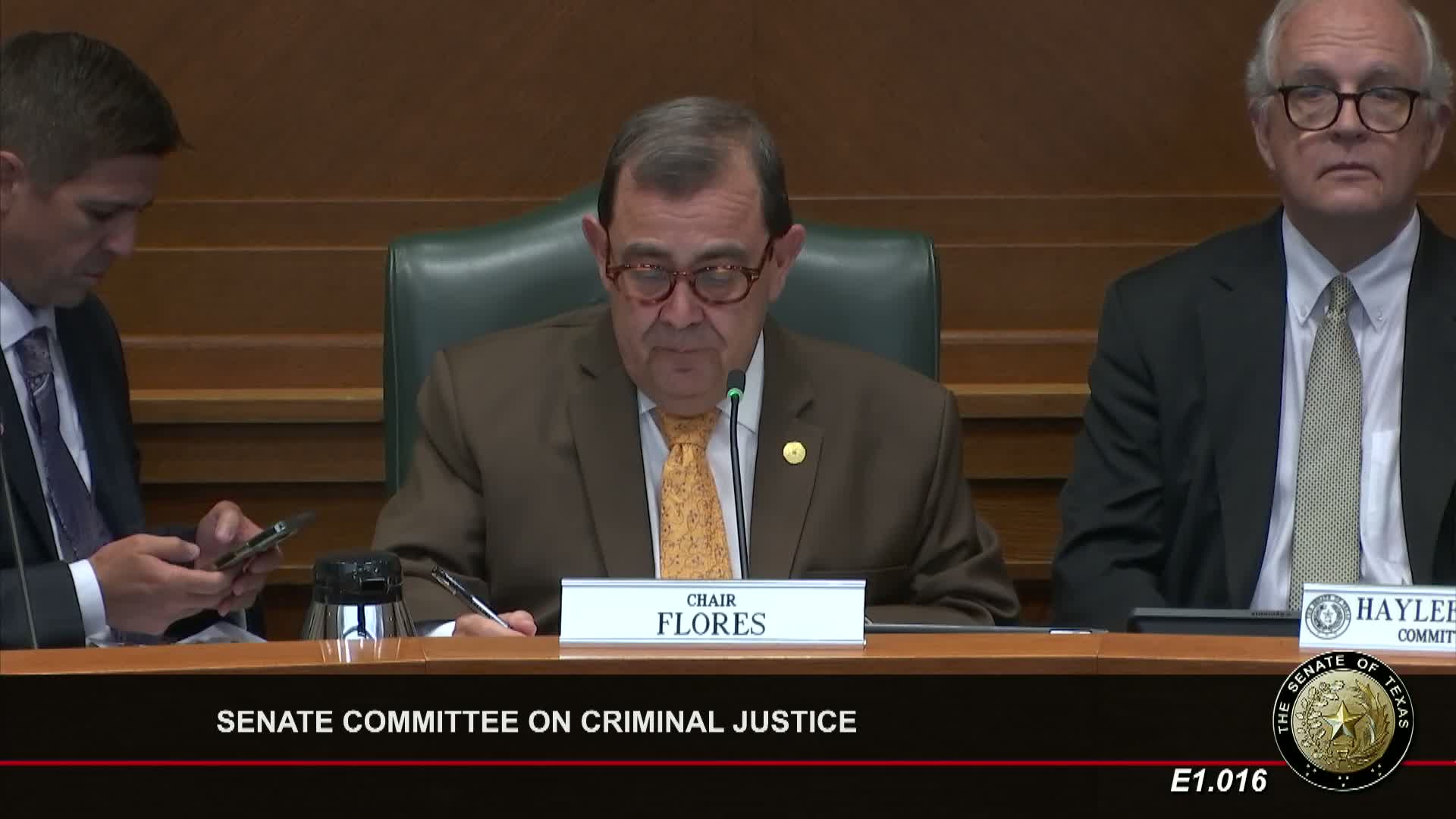
Panel hears proposal to bar civil suits after acquittal or no-bill in self-defense cases
